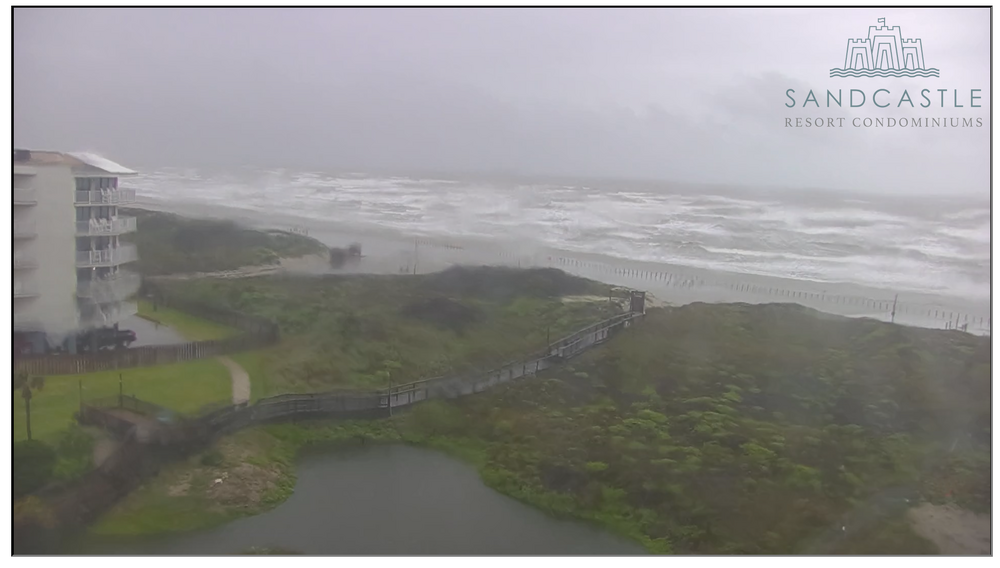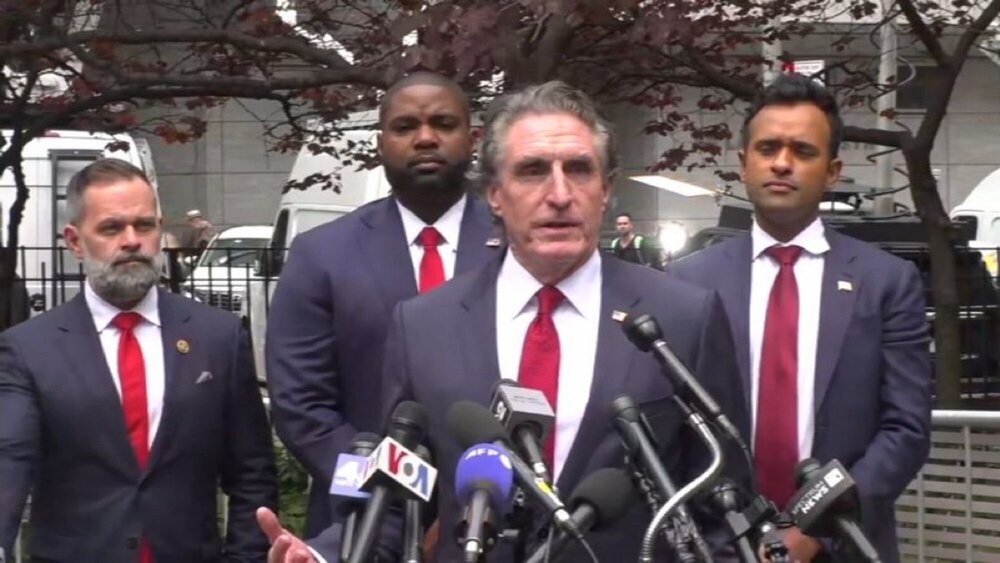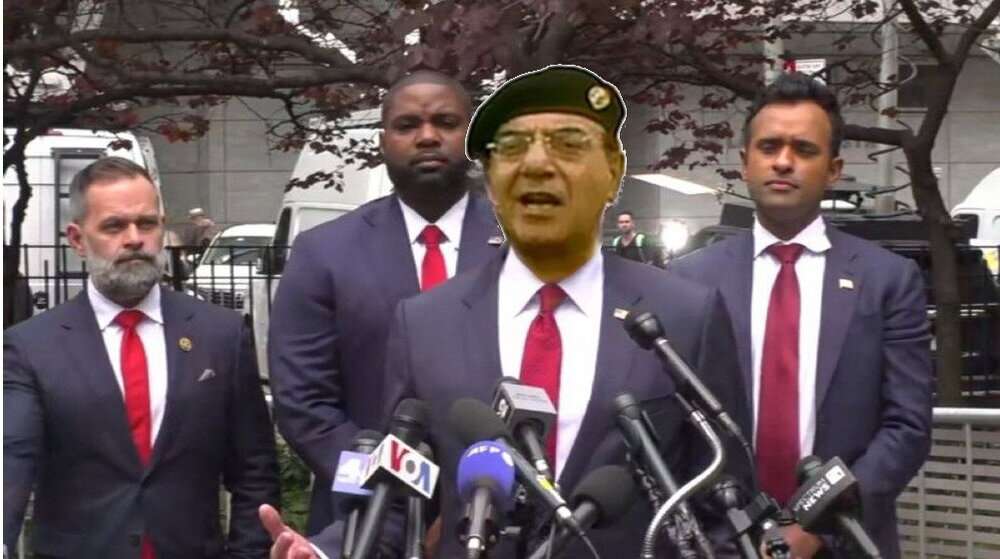
Posts posted by smokebomb
-
-
36 minutes ago, Hank Kingsley said:
Someone explain to me how it's legal or acceptable for this to happen. Biden needs to handle this with Netanyahu immediately.
It is illegal - it is a violation of the Logan Act but only two people ever have been indicted and neither were convicted.
And Trump isn't the first to violate it, Nixon most famously violated it to help his campaigns in 1968 while some theorize Reagan violated it 1980 to help his. Nixon's actions were the most egregious in that it prevented a possible end to the Vietnam war:
Regan and the October Surprise: https://en.wikipedia.org/wiki/1980_October_Surprise_theory
TLDR - Same shit, different day.
-
In case any of you use the Anova Sous Vide cooker to cook their steaks, Anova is implementing two major changes:
#1 - they are going to start charging $10 a year for Anova app access for any accounts created after 8/21:
https://anovaculinary.com/blogs/blog/update-existing-users-grandfathered-in-new-users-will-pay-a-small-app-subscription-fee?srsltid=AfmBOor0R0kHCR4_qHtOBxkGCHzhZH-T_VIfBK3an4L3XL8gx-zdF94P
#2 - they are going to disable Bluetooth/WiFi access from the app to older cooker models next September. You’ll be able to manually set the cooker on the cooker display but not through the app:I’m really disappointed as the product worked perfectly & they are only making changes to try & squeeze in a few extra bucks. It will still function but in a degraded state.
-
FAFO - https://www.fox7austin.com/news/lockhart-pit-bulls-shooting-mini-horse
QuoteLockhart family shoots neighbor's pit bulls after attack on livestock
By Meredith Aldis
Published August 6, 2024 5:26pm CDT
CALDWELL COUNTY, Texas - A Lockhart family is speaking to FOX 7 Austin after shooting and killing three of their neighbors' dogs who they say attacked their animals.
The Caldwell County Sheriff’s Office responded to the deaths of several livestock that were attacked by a pack of dogs.
On Friday, they attacked again, but they didn't get away.
The woman who owns the livestock said she had to take matters into her own hands to keep her animals safe.
"I'm trying to see through the window what is actually going on, I call 911 at the same time, and then I hear three blasts," livestock owner Michelle Gomez said.
Gomez said her husband shot the neighbor’s pit bulls early Friday morning.
"He's protecting me and my animals," Gomez said.
She said the dogs either climbed over her fence or dug under it and were attacking her pig.
"They were trying to get his ears, but he fought," Gomez said.
The pig survived. Three dogs are now dead.
"The cops have always given me and told me you have a right to shoot and kill the dogs," Gomez said. "I don't like to kill dogs. I mean I love animals. They should not have to die by a bullet."
Gomez said enough was enough.
"I think that she's going to be more careful about letting them loose or letting them loose at night, like the way she has been," Gomez said.
In the past two years, Gomez said her pig and donkey were attacked and her three chickens, foal, and a miniature horse were killed.
"I live in fear for my life," Gomez said.
Caldwell County records show from January 2022 to the end of July 2024, there have been more than 45 calls for service from these two neighboring properties for things like cruelty to animals, animal attacks, noise complaints, threats, neighbor disputes, stray dogs, and animals at large.
A miniature horse was viciously attacked by pit bulls in Lockhart
Records show the owner of the dogs has received two citations for nuisance animals. The Caldwell County Sheriff’s Office said she made the scheduled court dates and paid the fines to the court.
"A citation is not enough. To remedy this, they need to pick up the dogs," Gomez said.
The Caldwell County Sheriff’s Office originally told FOX 7 they couldn’t comment on this case because it was active. On Monday night, they made a statement and said they have, "followed the laws of the State of Texas and has pursued this matter to the fullest extent possible, as the situation stands today between the neighbors in this case, and will continue to follow state law in these kinds of situations to hopefully prevent more deaths of pets and livestock in our County."
Gomez said she plans to sue Caldwell County and her neighbor for all that she’s been through.
-
7 minutes ago, Armybrat said:
What a difference a week makes at the Sandcastle condos in Port Aransas…
(click the Sandcastle live webcam link below the pic)
It’s starting to kick off..
-
-
-
-
10 hours ago, YGIFS said:
Dammit, I was gonna post the same thing but didn't scroll down enough.
If somebody here with digital skills can take that Seinfeld clip scene at Festivus Dinner. Where Elaine sits down and asks the OTB guys, "Hey, how'd my horse do?" And then put Ted Cruz's face on the creepy dude in the leisure suit who says, "He had to be shot." I promise I can get that his Chief of Staff via email.
Damnit - GenXer beat me to it.
-
Edited by smokebomb
Alex might be thinking of hiding out in Terlingua:
https://www.texasmonthly.com/news-politics/what-is-alex-jones-doing-in-terlingua/
-
Guess Nicole is back in town:
QuoteAPD: Body found in Lady Bird Lake, investigation underway
by: Julianna Russ
Posted: Apr 13, 2024 / 07:59 AM CDT
Updated: Apr 13, 2024 / 10:25 AM CDT
AUSTIN (KXAN) — Austin-Travis County EMS said a body was reported in the water near Lady Bird Lake Saturday morning. At the scene, medics found an adult who was then pronounced dead.
The Austin Police Department said an investigation was underway by APD homicide detectives, but the incident was not being investigated as a homicide.
ATCEMS said it responded to a water rescue call at approximately 7:40 a.m. Saturday in east Austin.
According to police, a fisherman found an unknown person floating in the water. That person was later pronounced dead at 7:52 a.m.
-
1 hour ago, ScottS said:
What is their Surly handle?
There are pictures in the linked article for the curious.
The travel agency that runs those nude cruises, Bare Necessities, is actually based out of Austin. Maybe they have a Surly handle?
-
23 minutes ago, Armybrat said:
WTF is VPN?
I barely know what IP is from the IPIHB forum.
An IP is an identifier used by your computer to use the internet. Typically you get assigned the same IP by your cable modem. If you leave your cable modem off for few hours, you’ll get assigned a new IP. But most people don’t do this & pretty consistently get assigned the same IP for months at a time
When your account gets banned, you can no longer use the account but you can create a new account & start over.
When you get permaban’d, your account gets banned AND Surly tracks your home IP and won’t let you create a new account from that IP anymore (and maybe even prevent access to the website at all). This effectively prevents a specific person from using the website.
A VPN is a service that is used to encrypt/prevent others from looking at your web traffic. But it also has the added benefit of changing the IP address Surly sees when you visit. If he used a VPN, Derka’s account would be still deactivated but the permaban wouldn’t completely work since he could create new accounts & use the site.
This then would most likely lead to imamac playing wack-a-mole & permabanning each account & IP that Derka use. Identifying Derka would be relatively easy due to his known writing style but requires annoying work by Imamac.And this is one example of why people get burned out running message boards.
-
Video in link - dogs look to be pit bulls.
QuoteVideo shows pair of aggressive dogs tear through a car to get to a cat inside
By Robert Grant, Action News Jax
March 26, 2024 at 6:46 pm EDT
JACKSONVILLE, Fla. — A vicious dog attack you’ve likely never seen before is caught on camera. It shows a pair of dogs tear through a car in southwest Jacksonville while attempting to get a cat hiding inside.
Christie Barr was asleep when it happened around 3 a.m. over the weekend. She woke up to the extensive damage in the morning.
“I thought someone maybe took a BB gun and shot my car,” she told Action News Jax’s Robert Grant.
She called the Jacksonville Sheriff’s Office and police went through the security camera video and discovered it wasn’t a person, but dogs responsible for the damage.
The video shows the neighbor’s car jumping behind the engine shortly before the dogs go after her.
Barr said they never got to the cat and it survived. “There’s no doubt in my mind had they gotten that cat, she wouldn’t be here today.”
The insurance company towed her car and estimated up to $3,000 in damage from the dogs. Now neighbors don’t know where the dogs are and are concerned for the neighbors’ safety. Barr said she reached out to animal control, but no one has responded so far.
“If they can do that to metal on a car, they could tear a human being up,” Barr said. “You need to take care of them. Don’t let them be out running the streets during the middle of the night.”
Action News Jax reached out to the city to see if ACPS is looking into it, but we haven’t heard back yet.
And of course it is in Florida.
-
-
Some researchers are thinking Alzheimer’s may actually be an autoimmune disease:
https://www.sciencealert.com/alzheimers-might-not-actually-be-a-brain-disease-expert-reveals
QuoteAlzheimer's Might Not Actually Be a Brain Disease, Expert Reveals
The Conversation
The pursuit of a cure for Alzheimer's disease is becoming an increasingly competitive and contentious quest with recent years witnessing several important controversies.
In July 2022, Science magazine reported that a key 2006 research paper, published in the prestigious journal Nature, which identified a subtype of brain protein called beta-amyloid as the cause of Alzheimer's, may have been based on fabricated data.
One year earlier, in June 2021, the US Food and Drug Administration had approved aducanumab, an antibody-targeting beta-amyloid, as a treatment for Alzheimer's, even though the data supporting its use were incomplete and contradictory.
Some physicians believe aducanumab never should have been approved, while others maintain it should be given a chance.
With millions of people needing an effective treatment, why are researchers still fumbling in this quest for a cure for what is arguably one of the most important diseases confronting humankind?
Escaping the beta-amyloid rut
For years, scientists have been focused on trying to come up with new treatments for Alzheimer's by preventing the formation of brain-damaging clumps of this mysterious protein called beta-amyloid.
In fact, we scientists have arguably got ourselves into a bit of an intellectual rut concentrating almost exclusively on this approach, often neglecting or even ignoring other possible explanations.
Regrettably, this dedication to studying the abnormal protein clumps has not translated into a useful drug or therapy. The need for a new "out-of-the-clump" way of thinking about Alzheimer's is emerging as a top priority in brain science.
My laboratory at the Krembil Brain Institute, part of the University Health Network in Toronto, is devising a new theory of Alzheimer's disease.
Based on our past 30 years of research, we no longer think of Alzheimer's as primarily a disease of the brain. Rather, we believe that Alzheimer's is principally a disorder of the immune system within the brain.
The immune system, found in every organ in the body, is a collection of cells and molecules that work in harmony to help repair injuries and protect from foreign invaders.
When a person trips and falls, the immune system helps to mend the damaged tissues. When someone experiences a viral or bacterial infection, the immune system helps in the fight against these microbial invaders.
The exact same processes are present in the brain. When there is head trauma, the brain's immune system kicks into gear to help repair. When bacteria are present in the brain, the immune system is there to fight back.
Alzheimer's as autoimmune disease
We believe that beta-amyloid is not an abnormally produced protein, but rather is a normally occurring molecule that is part of the brain's immune system. It is supposed to be there.
When brain trauma occurs or when bacteria are present in the brain, beta-amyloid is a key contributor to the brain's comprehensive immune response. And this is where the problem begins.
Because of striking similarities between the fat molecules that make up both the membranes of bacteria and the membranes of brain cells, beta-amyloid cannot tell the difference between invading bacteria and host brain cells, and mistakenly attacks the very brain cells it is supposed to be protecting.
This leads to a chronic, progressive loss of brain cell function, which ultimately culminates in dementia – all because our body's immune system cannot differentiate between bacteria and brain cells.
When regarded as a misdirected attack by the brain's immune system on the very organ it is supposed to be defending, Alzheimer's disease emerges as an autoimmune disease.
There are many types of autoimmune diseases, such as rheumatoid arthritis, in which autoantibodies play a crucial role in the development of the disease, and for which steroid-based therapies can be effective. But these therapies will not work against Alzheimer's disease.
The brain is a very special and distinctive organ, recognized as the most complex structure in the Universe. In our model of Alzheimer's, beta-amyloid helps to protect and bolster our immune system, but unfortunately, it also plays a central role in the autoimmune process that, we believe, may lead to the development of Alzheimer's.
Though drugs conventionally used in the treatment of autoimmune diseases may not work against Alzheimer's, we strongly believe that targeting other immune-regulating pathways in the brain will lead us to new and effective treatment approaches for the disease.
Other theories of the disease
In addition to this autoimmune theory of Alzheimer's, many other new and varied theories are beginning to appear. For example, some scientists believe that Alzheimer's is a disease of tiny cellular structures called mitochondria – the energy factories in every brain cell.
Mitochondria convert oxygen from the air we breathe and glucose from the food we eat into the energy required for remembering and thinking.
Some maintain that it is the end-result of a particular brain infection, with bacteria from the mouth often being suggested as the culprit. Still others suggest that the disease may arise from an abnormal handling of metals within the brain, possibly zinc, copper, or iron.
It is gratifying to see new thinking about this age-old disease. Dementia currently affects more than 50 million people worldwide, with a new diagnosis being made every three seconds. Often, people living with Alzheimer's disease are unable to recognize their own children or even their spouse of more than 50 years.
Alzheimer's is a public health crisis in need of innovative ideas and fresh directions.
For the well-being of the people and families living with dementia, and for the socioeconomic impact on our already stressed health-care system coping with the ever-escalating costs and demands of dementia, we need a better understanding of Alzheimer's, its causes, and what we can do to treat it and to help the people and families who are living with it.
-
Pretty detailed discussion on the I-35 TxDoT work:
-
On 1/20/2024 at 3:30 AM, Enemy07 said:
Any of you people go back to grad school mid 30's? I finished Economics at UT with a 3.1 or 3.2 and do not know if that will be enough to get accepted. I finished with the bare minimum. No recs, no volunteer work (that was during my 1st degree), no extra curricular, etc. Would you recommend it or not? How was your journey? Debt is not a problem.
Also, is there a better forum to post this?
My 2 cents (and prob doesn't apply as much to MBA or Law School programs):
1. I'd go see a graduate advisor and talk to them. They should be very blunt about your chances and let you know what you need to do. I did this at UT and was literally laughed out of the advisor's office but that's what happens when you have a C undergraduate average in Liberal Arts.
2. One thing that most people don't know is that you can still take UT undergrad classes after you graduate. If you are serious and think you need some extra help, re-enroll to UT and sign up for a graduate class as an undergrad in the department will be applying. You will need to go the professor and ask their permission, but as long as you are taking it for a grade and not auditing or pass/fail, they prob won't have a problem with it. This will get you used to school again and if you make an A (in grad school anything below a B is bad), you can use the professor for a referral on your graduate application. This will show that you are serious and can handle grad level work. I did this and although I made a B, the professor wrote me an appropriate referral and that was the only reason I was able to get into my grad school. If you are not in Austin, doing this may be difficult but if you can take a grad class near you, the same applies.
3. Figure out what you want to focus on. Grad work is typically very specialized and coming into the application process with a good idea of what you want to focus on will be very important. The more precise, the better.
4. A cursory glance shows that UT has a terminal masters program for Economics. If this is what you want to study, I personally think your grades would be fine (the advisor would be able to confirm). If you want to get a PhD though, I would guess you might have to show do a bit more to get accepted. Doing well in a grad school class or two might help but you may even have to get a grad degree elsewhere before applying to the PhD program. They may allow people to transfer into the PhD program after they have finished the Masters but since it is labeled as terminal, I have the impression this may be difficult.
Again - these are just my opinions, I am sure others have their own first hand experiences and may offer different insights.
Good luck - I really enjoyed grad school. It was much more difficult than undergrad but I was more mature and studied subjects I was way more interested in.
-
-
5 hours ago, Nice Guy Eddie said:
Boebert reportedly got into a physical altercation with her husband (ex?) at a CO restaurant Saturday night. I have not seen this confirmed by news sources and I haven’t seen any video. Initial reports are that she was hitting him, and then called the cops on him. But I can see that details and timelines can easily be wrong.
Who knows how true:
-
Edited by smokebomb
This means a 14% increase during the non-busy periods for just the Mopac expressway:
QuoteRates increasing for several toll roads around Central Texas
Officials say the rates change annually to stay consistent with inflation.
Author: John Diaz, Matt Coutu
Published: 11:18 PM CST January 5, 2024
Updated: 11:18 PM CST January 5, 2024
AUSTIN, Texas — Driving around Central Texas is about to get more expensive.
Rates are increasing for several toll lanes in the Austin area, including those on U.S. 183, U.S. 183A, Highway 290, State Highway 71 and State Highway 45.
The rates are rising by nearly 4%, which means drivers can expect to pay between 2 and 5 cents more per trip. Officials say the rates increase to stay consistent with inflation.
Drivers who use electronic tags on their cars will continue to save money, which is usually about 50% less than those who choose to pay by mail.
Drivers who use the MoPac express lanes will also see an increase of 7 cents to the base cost of a trip on a single segment, or 14 cents on a full-length trip.
-
-
-
Edited by smokebomb
I can’t see the neighborhood ever getting behind this:
https://www.mysanantonio.com/business/article/naus-enfield-drug-redevelopment-18554544.php
QuoteFormer Nau's Enfield Drug faces mixed-use retail, residential future
The historic store officially closed in March.
By Cristela Jones
Dec 15, 2023
What was once a cherished part of the rich history of Austin is now in the planning stages of being redeveloped. The Austin American-Statesman reports that the beloved Nau's Enfield Drug building, located in Austin's Clarksville neighborhood, could be changed into a mixed-use residential and retail project.
New convenient store in Central Texas
Nau's, which was one of the last "old Austin" staples in town, announced its closure last year and ceased operations this March. Nau's Enfield Drug was known as a treasured pharmacy and soda bar.
The new Austin-based owner, Zydeco Development Co, purchased the property and three others this fall for an undisclosed price. Zydeco is planning for a possible five-story development after recently meeting with the Old Austin neighborhood Association and Clarksville neighbors, according to the Statesman.
"We know it's a special property to a lot of people and we want to do right by it and thoughtfully reimagine the space," Zydeco principal Meghan Yancy said to the Statesman. "We're looking for more height so we can add more green space."
Plans were discussed to include rezoning the area to 25 to 30 condominiums, retail shops, and underground parking for 120 vehicles. Nau's was one of the many businesses that didn't survive the COVID-19 pandemic, which prompted the Labay family to lose its lease in April 2022.Opened by the Nau family in 1951 on West Lynn Street, the business remained a popular and nostalgic local pharmacy, even after Lambert Labay took over in 1971. The soda fountain closed in 2020, but the building remained known for its small-town look and feel that once sold cheeseburgers, served with a smile.
MySA reached out to Zydeco for comment, but did not hear back prior to publication.
-











[Harris+Walz] The 2024 DNC: TURN DOWN FOR WHAT?!
in Cloak Room
Bill is speaking tomorrow.